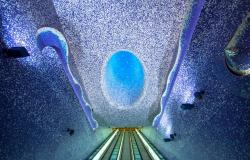A new edition of Lake Como of Advanced Studies: teachers, scholars and researchers from the most prestigious universities will meet in Como for study activities on scientific topics.
Lake Como of Advanced Studies
The twelfth edition of the Lake Como of Advanced Studies will begin on May 6th, a post-university high-level training activity promoted by the Volta Foundation, under the aegis of five Lombard universities (Polytechnic University of Milan, University of Insubria, University of Milan and of Milan Bicocca, University of Pavia) and the support of the Cariplo Foundation. The Summer School will be held from 6 to 9 May, as part of the MUSA project, with the objectives: Educate in sustainable entrepreneurship, in step with the contemporary world, aiming at innovation and finance through dialogue, contamination and research.
Cariplo Foundation
“One of the four sectors of intervention of the Cariplo Foundation’s philanthropic activity is represented by Research, Innovation and Technology Transfer – He states Enrico Lironi, board member of the Cariplo Foundation – Announcements are issued annually aimed at basic research in the biomedical, psychosocial, rare diseases fields and in the post-Covid phase also specific interventions in this sector. Fondazione Cariplo then understood the need to invest resources in training. Hence the support for Technical and Professional Institutes, the help for young researchers and since the birth of the Lake Como School the provision of a decisive annual contribution to ensure the joint effort with the Universities of Insubria, Bicocca and the Statale of Milan , of Pavia and the Polytechnic of Milan, would translate into the promotion of a Higher Education School in the field of complex systems. The topics addressed range between different topics and the now tested formula has allowed a notable numerical development, the result of the high quality of the international teachers and experts who attract graduates, doctoral students and young scholars from all over the world – Concludes Enrico Lironi – Fondazione Cariplo is satisfied with the well-deserved success that the Lake Como School is achieving again this year, aware that research and the diffusion of knowledge – together with the beauty of the splendid setting of Villa del Grumello in Como – are factors that strengthen the territorial identity in the world”.
Higher education, scientific research, culture and universities
The twelfth edition of the Lake Como School is about to begin, established by the Alessandro Volta Foundation to promote higher education, scientific research, culture and university by addressing young researchers in the field of complex systems theories and also organizes meetings on topics scientific studies open to the public. “30 schools are planned for 2024: the current world is becoming increasingly complex in every aspect, from economic to social, from health to the environment, from nanotechnologies to artificial intelligence – Comment Giulio Casati, director of Lcs – To address these problems, the most diverse knowledge is required, not available in a single department or even in a single university. It is becoming increasingly crucial to bring together the best skills. This year the schools will deal with highly topical topics such as bio-nano materials, nano optics, deep learning, climate intelligence, artificial intelligence. The approach is interdisciplinary.”
It starts at the beginning of May (6 May) with an activity coordinated jointly by three Lombard universities: Bocconi, the Polytechnic of Milan and the University of Milan Bicocca. The theme is “Sustainable entrepreneurship, innovation and entrepreneurial finance”: the creation, success, longevity and survival of new businesses are profoundly linked to the effectiveness of internal and external decision-making processes. Decisions in turn are influenced by entrepreneurs’ emotions, passions, values, beliefs and cognition. These mechanisms influence entrepreneurs’ ability to make decisions, while at the same time influencing the survival of businesses. The lectures, led by international experts, will discuss sustainable entrepreneurship and provide an understanding of the impact of social and environmental concerns on the strategies of new businesses and their ability to attract external capital.
Progress, challenges and opportunities
The immediately following school – (13-17 May, Computational Social Science: Advances, Challenges and Opportunities) has as its theme the progress, challenges and opportunities in the use of computational methods for the study of social phenomena. Harnessing the power of computation and data, computational social scientists aim to discover patterns and trends in complex social systems that may be difficult or impossible to discern through traditional research methods. Topics of interest include social networks, online communities, opinion dynamics and collective decision making. Computational social science has become increasingly important as our world becomes more digitalized, and its insights have significant implications for fields such as public policy, marketing, and sociology.

Neurological health and diseases
The last school of this year will be in October, from the 14th to the 18th, and will cover health and neurological diseases. It will be directed by a team of international experts, including the professor Michela Matteoliof the biomedical sciences department of Humanitas in Milan, and the professor Thierry Galli of the Institute of Psychiatry and Neurosciences in Paris. The professor will be present among the teachers Pietro De Camilli, professor of neuroscience and cell biology at Yale University, and professor Markus Wenk from the National University of Singapore. “Human health and disease are the consequence of many critical biochemical reactions in the body that go far beyond what can be explained by genetic background and genetic variation. Casati states – These biochemical components—nucleic acids (DNA, RNA), proteins, carbohydrates, metabolites and lipids—and their natural variations are often poorly characterized in human populations.”

What Lake Como School offers
The school will offer an overview of fundamental advances in the field over the past few decades, including the role of the immune system in regulating the synapse and neuronal function. Still on the topic of health, in the previous month of September another school will discuss how populations of tumors, viruses and bacteria evolve over time, analyzing the computational aspects of the different evolution models. It will also deal with how to analyze a pangenome to identify genetic variants associated with human diseases, distinguishing them from the plethora of neutral variants that emerge from “healthy” evolution. “Organizing a higher education model, in collaboration with Lombard universities, concretizes the role of the city of Como as a place of excellence for the promotion of the human sciences – Comment Luca Levrini, president of the Alessandro Volta Foundation – The number of schools organised, the high profile of teachers and students expected from all over the world can only integrate perfectly in moments in which the concept of higher education is growth and above all creative development of culture. For 2025 we must have the ambition to grow, in the number of schools, in the use of new spaces and with the entry of new Lombard universities such as Brescia and Bergamo. A dutiful thank you to Professor Casati, to whom the Volta Foundation owes particular recognition and gratitude in this area, but also to the professor Enrico Lironi who has always encouraged and supported the concrete value and prestige of the initiative”.
The LCS has now established itself worldwide and has seen growing interest and participation from teachers from Lombardy universities. From 6 schools in 2013, we have reached 30 schools in 2023. The overall number of students who participated in the activities last year was over 1500, of which more than half came from 50 countries around the world
In 2023 1,200 scholars at Lake Como School
In 2023, around 1200 scholars, half Italian and half from 45 countries around the world, arrived in Como to participate in the Lake Como School; a total of 26 schools. The topics covered current and future developments in different fields of knowledge. Mathematics, physics, economics, medicine, social sciences, including the effects that modern technologies – from nanotechnologies to artificial intelligence – have on our society. “The Lake Como School is supported by the contribution of the Cariplo Foundation, the Milanese universities and makes use of the organizational support of the Volta Foundation. For the future it is necessary to proceed with an institutional consolidation of the school so that it can establish itself as a point of reference for higher education and for the international scientific comparison of the Lombardy university system, a step forward was made last December, by the regional councilor Fermi, with the adhesion of the Lombardy Region to the Lake Como School – concludes Casati – It is necessary now that this first formal step evolves into a concrete commitment by the Region to support an initiative that qualifies the role and vocation of our city in the Lombard regional panorama”.
Tags: Lake Como School Advanced Studies starting #12th edition







